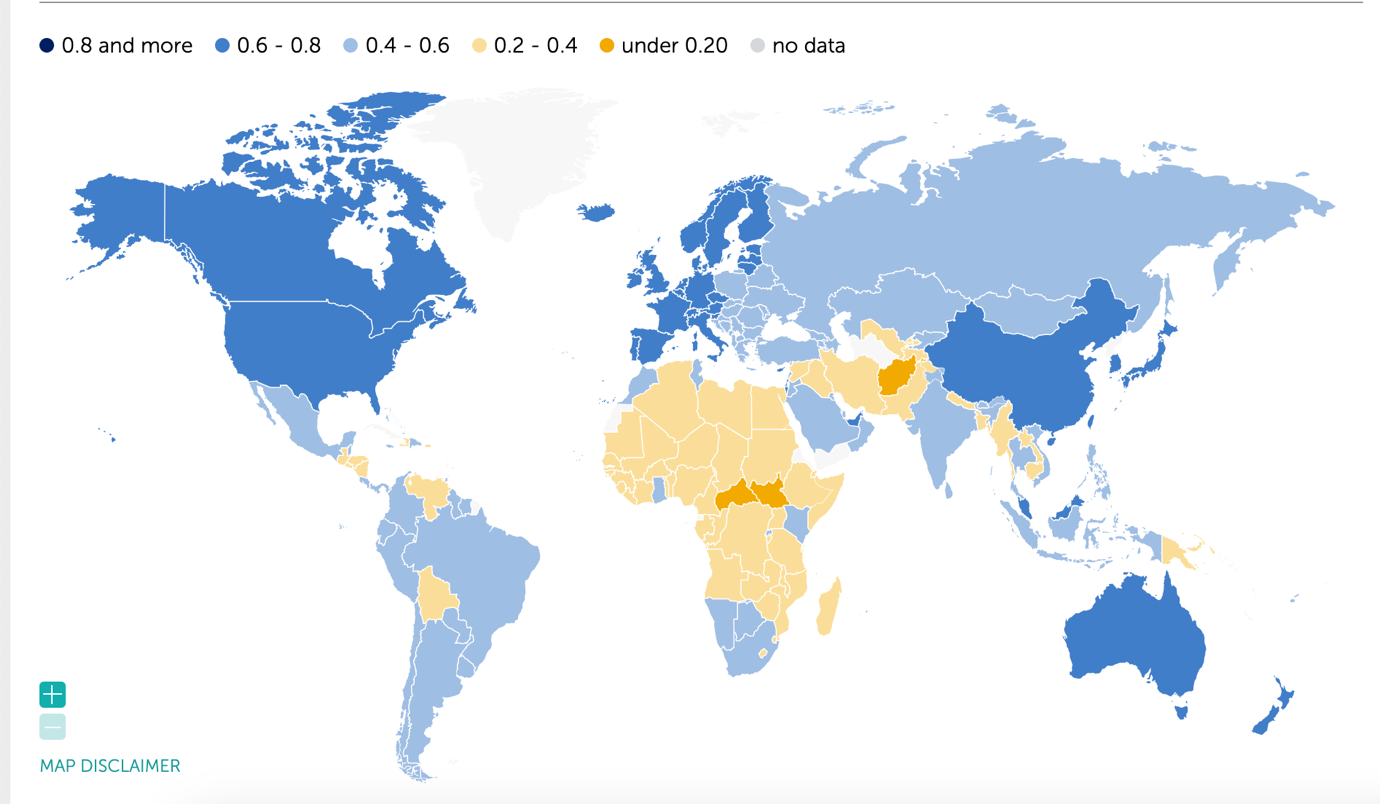|
Getting your Trinity Audio player ready...
|
Singapore and Denmark are the two countries whose economies are most prepared for the upcoming artificial intelligence (AI) revolution, the International Monetary Fund (IMF) says.
The IMF recently published the AI Preparedness Index, mapping 174 countries and their ability to adopt and leverage AI to boost their economies. Expectedly, the developed economies dominated the upper rankings. Overall, North America topped the regional rankings with an average preparedness index of 0.74.

According to IMF research, Singapore is the world’s most prepared country for AI. Denmark, the U.S., the Netherlands, and Estonia complete the top five.
For Singapore, the ranking comes after years of aggressive investment in AI infrastructure and talent. A 2020 study ranked the nation tenth and since then, it has progressively ranked higher since then. Despite having only 5.5 million residents, the country has courted AI giants from its Asian neighbors like China without alienating the West.
Despite having some of the world’s biggest AI companies, China ranked 31st globally, below smaller nations like Malta, Luxembourg, and Israel.
While developed economies are best prepared for AI, the IMF noted that they also stand to be the most disrupted by the technology.
“[AI] could endanger 33 percent of jobs in advanced economies, 24 percent in emerging economies, and 18 percent in low-income countries,” stated the Washington-based organization.
The reason for the disparity is that advanced economies have a higher share of high-skilled jobs, which AI is most likely to disrupt.
AI job losses remain a contentious topic. Some, like Goldman Sachs (NASDAQ: GS), have claimed that nearly 300 million jobs could be lost to AI automation by the decade’s end. However, other studies have downplayed such job losses, including the UN’s International Labour Organization (ILO), which says that AI will complement most professionals, not replace them.
Africa remains the region least prepared for the AI revolution despite recent efforts to integrate the technology. South Africa ranks highest with a 0.5 index, with Kenya, Ghana, Rwanda, Botswana, and Namibia the other high-ranked nations. Nigeria, despite being Africa’s largest economy and the region’s most populous country, was among the lowest ranked in the region.
In order for artificial intelligence (AI) to work right within the law and thrive in the face of growing challenges, it needs to integrate an enterprise blockchain system that ensures data input quality and ownership—allowing it to keep data safe while also guaranteeing the immutability of data. Check out CoinGeek’s coverage on this emerging tech to learn more why Enterprise blockchain will be the backbone of AI.
Watch: Foundational tech blockchain & AI can reinforce each other

 02-23-2026
02-23-2026 




